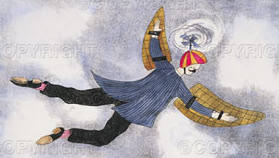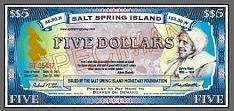YOGANIDRA
The Peace For your Life
|
Yoganidra Membership |

Click to join yoganidra4u

Dream
A dream is defined in Webster's Dictionary as a "sequence of sensations, images, thoughts, etc., passing through a sleeping person's mind and has been a topic of study dating back to 4000 B.C. One may say that dreams have been around as long as the first civilization came to be and are just a normal part of human existence.
In our dreams, we can go anywhere, we can be anybody, and we can do anything. When we dream, we are mere passengers, unable to control our actions and surroundings.
Sometimes, dreams can be understood in the context of repressed thoughts. Dreaming serves as an outlet for those thoughts and impulses we repress during the day. When we go to sleep at night and slip into our dream state, we feel liberated and behave and act in a manner that we do not allow ourselves in our waking life.
Dream Types
Insight Dreams
These are dreams that provide counseling, clarification, or resolution of some prominent issue affecting your life and consciousness. Counseling insight dreams provide direction, reassurance and understanding. These dreams occur during periods of inner turmoil, doubt, or despair. Clarification insight dreams occur when we do not receive or clearly understand a dream's message. These dreams clarify a previous dream's message. Resolution insight dreams provide solutions to matters we are not consciously able to resolve. These dreams allow us to see beyond the limits of our conscious mind.
Lucid Dreams
Dreams in which we become aware we are dreaming are lucid dreams. Sometimes these dream experiences are so real we are not aware that we are dreaming. A common experience involves the feeling of being awake in bed, in the dark with an intruder in the room. Although in the dark, this breakthrough dream experience reveals a consciousness that is awake and able to understand the dream state.
Precognitive Dreams
Your subconscious mind is acutely perceptive. It can determine the outcome of events affecting your life before they occur. Precognitive dreams reflect this extraordinary ability. Unlike psychic precognition, precognitive dreams do not reveal their insights through literal imagery. These dreams convey their insights in the language of the subconscious mind. That language is metaphoric rather than literal.
Review Dreams
The conditions and challenges of life often change how we view ourselves. There are moments when we pause to consider the person we have become. Review dreams depict these moments of introspection. These dreams show how we have evolved through our life experiences.
Gratification Dreams
Rarely do many of us receive what we want when we want it. Gratification dreams satisfy our unfulfilled desires. More than hollow imaginings, these dreams satiate desires that threaten our reason. Through their imagery, these dreams also affirm that we can literally achieve our desires through the experiences in our dreams.
Physical Dreams
Dreams with physical or emotional effects that linger beyond our sleep are physical dreams. Pain, fright, sorrow, or joy, the effect of this dream type could be any number of experiences. Physical dreams compel us to recall their imagery and evaluate their meaning. These dreams are a way in which our subconscious mind emphasizes the very real effect of an influence in our life.
Interpreting the Dreams
|
colors |

flying |
 kissing
kissing |
losing valuable object |

money |

nudity |

running |

sex |

teeth |

water |
Colors

Most of the time, we dream of colors because visually we live in a colorful world. However, when those colors become prevalent or unusual in the dream, they may be an interpretive object in themselves. This is especially true if an entire dream setting in is different hues of a particular color or if a significant object seems unique for its coloring.
Since many colors have archetypal feelings and emotions attached to them, the approach taken by Jung is often helpful. However, it may be that a particular color transcends a Jungian meaning because of an experience you have had with it. If Jungian types do not fit, try freely associating significant objects from your waking life with the same color as the dream object for meaning.
Color
- positive meaning (negative meaning)
Blue - nobility or tranquility (depression)
.
Black - power (death or mourning)
.
Brown - Earth, nature (scatological)
.
Gray - neutral (passionless, death)
.
Green - fertility, renewal, wealth (greed, envy)
.
Red - sacrifice, sex (carnality, taboo sex, humiliation, physical injury)
Purple - royalty, positive personal growth (injury)
.
Yellow - enlightenment, (cowardice, illness)
.
White - purity, wholesomeness, sacred ritual (emptiness)
Flying

Without Assistance
Flying in a dream is a fairly common, but very powerful event. Flying events seem to be divided among those who fly spontaneously in their dreams and those who have a lucid dreaming event and choose to fly. In either case, the dreamers report powerful feelings of freedom in the flight.
Flying as a spontaneous event often includes some special effort, like flapping one's arms, to get going. However, many people experience flight as soaring by a mysterious, jet-like power. These events are precipitated by a strong desire to travel or an imminent danger that requires escape.
Flying as a lucid dreaming choice is often of the levitation variety. These dreamers simply choose to fly because, in the reality of their dream, they know they may. This may be related to astral projection or an out-of-body experience that some people undergo.
These flights allow dreamers to transcend circumstances and acquire a more favorable or safer perspective. What prompted the will to fly-danger or euphoria-and where did the flight lead?
Nonsensical Means
In addition to flying independently, dreamers may fly on bikes, cars, boats, or other non-airborne equipment. These flights are generally brought about by circumstances where the current means of travel suddenly became inadequate or endangers the dreamer. A good example of this type of flight would be a bicycle that becomes airborne rather than be struck by a car. This dream may reveal a dreamer that sees dangers as inconsequential. It may also be a hero dream.
Kissing

Kissing is often associated with youthful love. It is teenagers, and not
parents, who kiss until they are weak in the knees on the escalator in the
mall. You can be kissing another, watching others kiss, or experience that
"I'm about to be kissed" moment.
Kissing another is often wish-fulfillment or sexual acting out. The wish-fulfillment may not be to kiss per se, but to experience the youthful energy of love. Kissing in this sense is the desire for the awakening of passion, not necessarily the passion acted out.
Watching others kiss may be a sign of knowing too much about them personally or participating in their lives at too personal a level. The exception here would be if you are watching your partner kiss another, which is an obvious herald of infidelity or a desire for voyeurism in the relationship.
The "about to be kissed" moment is an interesting one. Often, it occurs as we wake up. This is the dream that may most accurately reflect a desire for actual passion with another. The reason we wake up is the taboo feeling that perhaps, while we want this, it would not be beneficial to actually participate in it.
Is the kissing comforting or threatening to you?
Is it something you sought after, or was it forced upon you?
Is your general experience repugnant, romantic, or passionate?
Losing a Valuable Object

The things we value most often serve as an extension of our self-awareness. A
favorite hat, car, or relationship reflects a part of how we feel about
ourselves. Therefore, the loss of such an object in a dream is significant. It
is equally significant whether you actually own the object in waking or not.
If the thing lost is an inanimate object, what does it symbolize for you? Examples would be jewelry, favored clothes, or pictures and family heirlooms. In losses of this kind, the indication may be that you are nervous about losing an expensive or important new object in your life.
If a person is lost, the first question to ask is, "Who?" It may be that you have questions about your commitment to another or their commitment to you. However, it is not too unusual to be looking for a stranger.
Why are you searching for this person?
Do you find this person? Where?
Money


Money can be lost, gained, or spent in dreaming. Dreams about money are often
really about power, control, and competency. Consequently, the larger
perspective of who is interacting with you around money and what your role in
the transaction is are important features of the dream.
Many people who dream about money are controlled by it-the desire for it, the lack of it, or the inability to control themselves with it. This last category is seen most clearly in money dreams experienced by people who re drowning in debt.
If you gain money in a dream, note from whom and under what circumstances. This may be a dream about blessing. The gain of money in this instance is more a gain of emotional power and renewal through a completed relationship that no longer depletes the soul.
You may see yourself as having great wealth to dole out to others. This is often a symbol of needing to convey blessing onto others. The true need is rarely financial, but a need to help others.
Losing money for no apparent reason is the picture of being unable to control oneself. The lack of control may actually be in the area of money, but it may also be the inability to restrain oneself from over-committing resources emotionally or otherwise.
In your waking life, how do you perceive and value money? In some families, money is an object taken for granted, in others it is a powerful symbol of control, influence, or status. Whether or not you have money problems, money dreams could reveal feelings about your relationship with power.
Nudity

Exposure in dreams is a powerful event. Often times, people report dreaming they are nude or dressed only in undergarments. These dreams often reveal the vulnerability that lies just below the surface of our more confident selves. This vulnerability comes from the self that we hide from others. The hiding may be conscious, such as taboo behavior, or less conscious, stemming from a general sense that if you were fully known, you would not be fully accepted.
Running

running is a traditional symbol of health and vitality in addition to being a
means of fleeing potential danger. Thus running could be considered a dream of
virility, as well as fear.
Usually, in a dream of running in which fear is the dominant emotion, you will find that you can either run all night or successfully escape the danger (albeit with a serious emotional drain), or you find that you continue to falter and stumble, making the object of your fear even more terrifying. In the latter case, try to relate the dream situation to a situation in your life where you are feeling incredible pressure. Sometimes a simple change of perception can solve the problem.
Sex

Dreams of sex and looking for sexual meaning in dreams is something of a
pastime for dream interpreters. Often, you don't have to look very far. Sexual
content, feelings of love, flirtation, attraction, and nocturnal rendezvous
are often very explicit in dreams.
Sexual meaning has long been a first path of inquiry in dream interpretation. This is due, in part, to the significant contributions of Sigmund Freud to the area of dream interpretation. However, interpreting the sexual content of dreams can be difficult. University studies reveal significant differences in how men and women dream about sex. However, when all is said and done, almost everyone is "doing it" in dreamland. How Much? Sex during dreaming is reported as a topic of at least 12% of male dreams and 4% of female dreams. This discrepancy is generally consistent with our waking sex drives, with men doing much more thinking about the topic than women. (It is said that men think about sex far more than 12% of their waking lives, though.) In his book finding the Meaning in Dreams, G. William Dumhoff reveals some interesting data about the manifestation of sex in dreams:
|
Gender |
Men |
Women |
|
Participating |
93% |
68% |
|
Watching |
7% |
32% |
This table indicates that women often separate themselves from what is going on in the dream sexually, whereas men see themselves as participants. This can be significant to understanding why it is more common for men-particularly boys-to have orgasms in the dream state than it is for women. It also reveals the conflict that many women feel about the good-girl/bad-girl taboo.
Aside from overt sexual activities in dreams, the question of sexual images and symbols as they occur in dreams is important. Because sexuality is often cloaked in a heavy shroud of secrecy, either through childhood or throughout life, the subconscious is prone to visually represent sex in a variety of ways. Freud, in his theory of the sexually driven personality, contributed much to this line of thought.
Freud did for sexual content in dreams what Henry Ford did for internal combustion. Suddenly everyone everywhere had dreams of sexual content. Ultimately, this led to Freud's demise in some segments of the intellectual community. Many scholars wonder if Freud was really as pre-occupied with sexual symbolism as he is purported to have been. The following is a partial list of the phallic symbols you may find indexed in a Freudian dream interpretation book:
Aerosol Cans, Antenna, Balloons, Bats, Birds, Boilers, Bottles, Can Openers, Cannons, Cigars, Cars, Chalk, Church Spires, Cords, Cucumbers, Drills, Fishing Poles, Fountains, French Bread, Golf Clubs, Gophers, Guns, Hammers, Hats, Keys, Kites, Knives, Lances, Laser Beams, Moles, Nail Files, Neckties, Needles, Pencils, Pens, Pipes, Pistols, Planes, Plows, Revolvers, Rockets, Ropes, Scalpels, Screwdrivers, Snakes, Spears, Sticks, Swords, Syringes, Tall Buildings, Telescopes, Tractors, Trains, Trees, Tubes, Umbrellas, Water Taps, Woodchucks, Wrenches and Zippers
Not to be left out, women's sexuality was likewise a source of attention and interest for Freud. The following list is far less extensive than the list for male phallic symbols, but almost as diverse:
Bowls, Children, Churches, Closed Rooms, Earth, Fruit, Flowers, Gardens, Houses, Moon, Mounds, Oceans, Ponds, Suitcases, Tunnels, Urns, Vases and Water
Teeth


Dreams about teeth and losing teeth are common. Often the dream is troubling,
although it does not contain the same fear or anxiety as a nightmare. In the
dream, the teeth often are a concern only to the dreamer. Other characters in
the dream either do not notice, or do not care, about the loose teeth.
A 19-year-old woman reports: I am in the bedroom combing my hair. A guy comes in and asks me if I am in a relationship. I say no. Then, he asks me out on a date. I say yes. He is about to kiss me and I ask him to hold that thought for a second. I go to freshen up a bit. When I wipe my mouth, my teeth begin falling out! Every one I touch falls out. No bleeding, just empty spaces in my mouth. I go back out of the bathroom, concerned, but the guy doesn't notice. Meanwhile, I'm a wreck.
In waking life, the woman reports feeling conflicted about ending a relationship with a man. She would like to renew it. Potential embarrassment is preventing her from doing so.
Dreams of losing teeth are often dreams of embarrassment or potentially embarrassing situations. The parallel waking experience could be summed up in the phrase "losing face" publicly.
Other possible teeth-loss dreams may come from physical sensations such as grinding your teeth or having particularly sensitive teeth.
Do your teeth get knocked out or do they fall out for no apparent reason?
Water

Water is central to the human story. Whether it is the deep, fresh lake, the
river that brings life, or the ocean that must claim her dead, water is both
friend and enemy at once. When dreams contain this powerful image in any of
its forms, understanding the role of the water is essential.
Water is a strong symbol in dreams because so often it is the exclamation point of the feelings in the dream. If other objects in a dream are relaxing, a bubbling brook through a meadow is more relaxing. If some symbols generate feelings of fear or anxiety, the tumultuous ocean creates the most anxiety. Water has symbolic, archetypal meaning in that it either provides life, or harbors mystery and danger. This is a reflection of our human experiences with water.
In early human history, the hunter-gatherers quickly learned that water was the central ingredient of life. (We die of thirst much more quickly than we starve.) More importantly, to know where the water was meant knowing where the food was.
However, as commerce expanded water became a necessary evil that harbored unknown dangers. Water travel was dangerous and uncertain as sea creatures, storms, and rough seas claimed numerous voyagers. Polluted water affected livestock and spread disease.
To emphasize the positive, water is often a symbol of new life, refreshment, and vigor. Water in manageable amounts or controlled settings almost always conveys this sentiment to the dreamer. Controlled water is the key.
If a dream contains a lake, is the entire shoreline visible and likely attainable?
If a river or creek is dreamed of, is it within its banks and apparently traversable by usual means? These are all examples of controlled water.
Water presented in this way is often indicative of renewal. For example, while traveling and growing weary, the dreamer suddenly happens upon a creek.
Refreshment for the journey is close at hand. Perhaps a dreamer is out on a boat, moving over the water gently. One should anticipate a season of respite or sabbatical in life, or perhaps create an opportunity such as this intentionally.
Uncontrolled water will often create a sense of unease for a dreamer. Raging rivers, rapids, and lakes without borders often reflect being out of control of one's circumstances. Still deep water, while sometimes refreshing, may also create unease. This is because of the murkiness or uncertainty of what lies below the surface.
One
exception to the generalities listed above is water faucets. In a dream, it is
important to recognize if the dreamer or another is controlling the faucet and
whether this is done to affect the comfort or discomfort of the dreamer. If
the dreamer is controlling the faucet ineffectively, the assumption may be
made that the dreamer feels out of control or unable to master what should be
apparently simple circumstances (or, what's worse, perhaps there is no water
to be had). If another controls the faucet, one may conclude that the dreamer
feels his circumstances, for good or ill, are dependent on the whimsy of
another. This whimsy may reflect either greater discomfort or comfort, whether
it is an unpredictable boss, lover, or other significant relationship.



For More Information Contact Yoganidra.u@gmail.com
Introduction Meditation Pranayam Tratak Mudra Yoga Guide lines MY Room Physical Benefits Psycho. Benefits Spiritual Benefits Practice Technique Audio Track Brain Waves Power of Yantras Dream Hypnosis Stress Anger Downloads Zodiac Zone Kundalini Sound Sleep Black Magic
© 1999-2007. All rights reserved. This site is for information and support; not a substitute for professional advice.